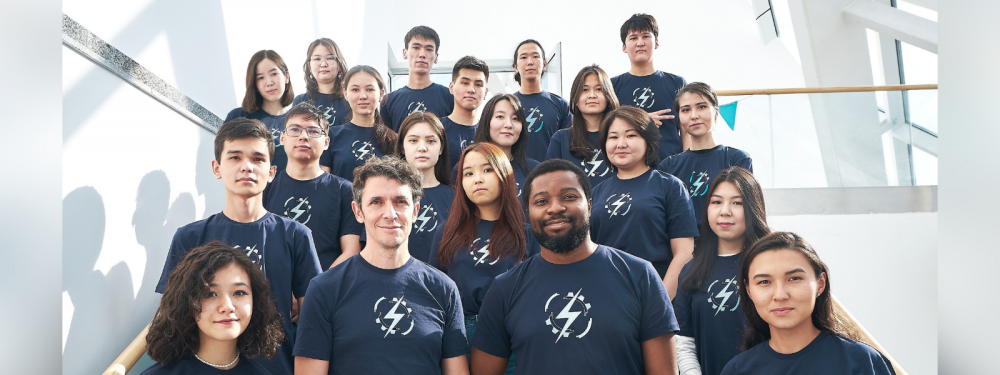NU team is a winner of the gold medal in the worldwide iGEM competition
The iGEM Kazakhstan, which consists of NU students became a winner of a gold medal at the International Genetically Engineered Machine (iGEM) competition, an annual worldwide synthetic biology event for undergraduates, graduates, and high school students. The iGEM competition is a truly international event with teams coming from all over the world. Every year nearly 6,000 people dedicate their summer to the iGEM and then come together in Boston in the autumn to present their projects that strive to create a positive contribution to their communities and the world. The United States, Canada, Chile, Pakistan, Japan, South Korea, Egypt, Bulgaria, Mexico, Brazil, Germany, France, and Australia are only some of the countries that have participated this year.
The iGEM Kazakhstan is the only team from Central Asia that has started participating in the iGEM Competition since 2013 and has won 2 gold medals, 1 silver, and 2 bronze medals since then. This year, for the first time in the history of iGEM, the iGEM Kazakhstan team were nominated for a multitude of awards, including the Track Award:Best Environment Project, and three Special Awards:Best Wiki, Best Inclusivity, and Best Sustainability. Additionally, the NU team made its way into the Top 10 Best Projects of the Year in the Undergraduate category among 255 other teams.
The iGEM Kazakhstan team has internal subdivisions according to occupation and responsibilities in project development such as Wetlab, Drylab, and Human Practices. Members of the team are undergraduate students of NU SEDS and NU SSH. The project is supervised by Dr. Enrico Marsili, Associate Professor of NU SEDS, Dr. Obinna Ajunwa, Postdoctoral Research Fellow at the Department of Chemical and Materials Engineering, and supported by Daulet Aitymbayev, NU Alumna and current Master’s student at the Ludwig Maximilian University of Munich.
The team has been working on developing a safer way to treat oil spills that pollute the endemic flora & fauna of Kazakhstan. The project is dedicated to finding a solution to this problem by developing a novel agent for crude oil bioremediation – “Remi, du et!”.
Currently, the team is finalizing the necessary experiment on a model strain – Pseudomonas aeruginosa and establishing grounds for further cooperative work with some Kazakhstani companies. Next year the team aims to upscale the bioprocessing of engineered bacteria to an industrial scale.


